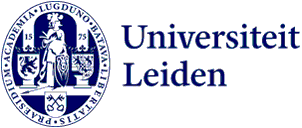Lecture | COGLOSS
Japan and the World
- Mizuho Yamamoto (University of Tokyo)
- Dr. Shingo Hashimoto (Ferris University)
- Date
- Wednesday 25 October 2023
- Time
- Serie
- COGLOSS seminars 2023-2024
- Address
-
Johan Huizinga
Doelensteeg 16
2311 VL Leiden - Room
- Conference room (2.60)
On Wednesday, 25 October from 15:30, Mizuho Yamamoto and Dr. Shingo Hashimoto will present on their work on the interaction between modern Japan and foreign visitors and influences. This session then will have two presentations. Mizuho’s talk is titled 'The Unexpected Visitors: Outgrowing from the Framework of Bilateral Foreign Relationships'. Shingo’s presentation is 'Crisis and Knowledge in Early 19th Century Japan: Otsuki Gentaku, Late Tokugawa’s Responses to Their Early Encounter with the US, and the Role of the Dutch People and Books'. The session will take place in Conference Room 2.60, Huizinga Building, Leiden.
Presentation abstracts
The Unexpected Visitors: Outgrowing from the Framework of Bilateral Foreign Relationships - Mizuho Yamamoto
How were foreign relations in early modern Japan different from modern diplomacy? Most of the studies of Japanese historical foreign relations from the 17th to the mid-19th century, with some exceptions, have focused on relations between nations. However, not all intercultural exchanges were intended or controlled by governments from the beginning. More specifically in Japan, many foreign ships with various backgrounds visited Japan neither for their nations nor with permission of the Shogunate, the government. But most of these cases are now described as a part of the history of bilateral foreign relations. What was the significance of each event for its contemporaries and today’s people, if not for national history? In this presentation, I will try to answer this question by focusing mainly on the attempts of American ships hired by the Dutch East India Company in trading with Japan during the Napoleonic Wars.
Crisis and Knowledge in Early 19th Century Japan: Otsuki Gentaku, Late Tokugawa’s Responses to Their Early Encounter with the US, and the Role of the Dutch People and Books - Dr. Shingo Hashimoto
This presentation will discuss knowledge production by the rangaku, the Japanese study group on Dutch culture in early 19th-century Japan, regarding its relations with Dutch people at the factory in Nagasaki. At the end of the 18th century, due to the regional crisis in Europe, Dutch merchants in Batavia sent their representatives by using foreign ships. From 1797 to 1807, they were forced to use vessels from three different countries, mainly from the US. Situations became more chaotic for both countries, especially when the British naval ship Phaeton entered Nagasaki’s port in 1808. Perceived as a crisis, the situation caused Otsuki Gentaku (1757-1827), a rangaku scholar in Edo, to immediately undertake investigations to find information behind the Dutch factory’s unorthodox practices of using foreign ships. As recent scholars have pointed out, Otsuki’s investigation first initiated Tokugawa’s intelligence activity on foreign affairs, allowing rangaku to be a part of the academic circle permitted by the Tokugawa government. This presentation will then examine Otsuki’s analysis of the information given by the Dutch opperhoofd of the factory, Hendrik Doeff, about the US, focusing on Otsuki's misconception of America as being preoccupied with a sense of crisis.
Speakers
Mizuho Yamamoto is a PhD candidate at the Graduate School of Humanities and Sociology at the University of Tokyo. Her research is about a history of intercultural communication between Japan and Western powers in the 18th to 19th centuries.
Dr. Shingo Hashimoto is a lecturer at Ferris University in Yokohama and Tokyo Institute of Technology in Japan. He earned his doctorate in Arts and Science from Tokyo Institute of Technology in 2021. His research is on the intellectual history of pre-modern and modern Japan, focusing on how Japanese knowledge of the world affected their perception of themselves and the West. He is also a member of the research group for History of Japan-Netherlands Relations.
